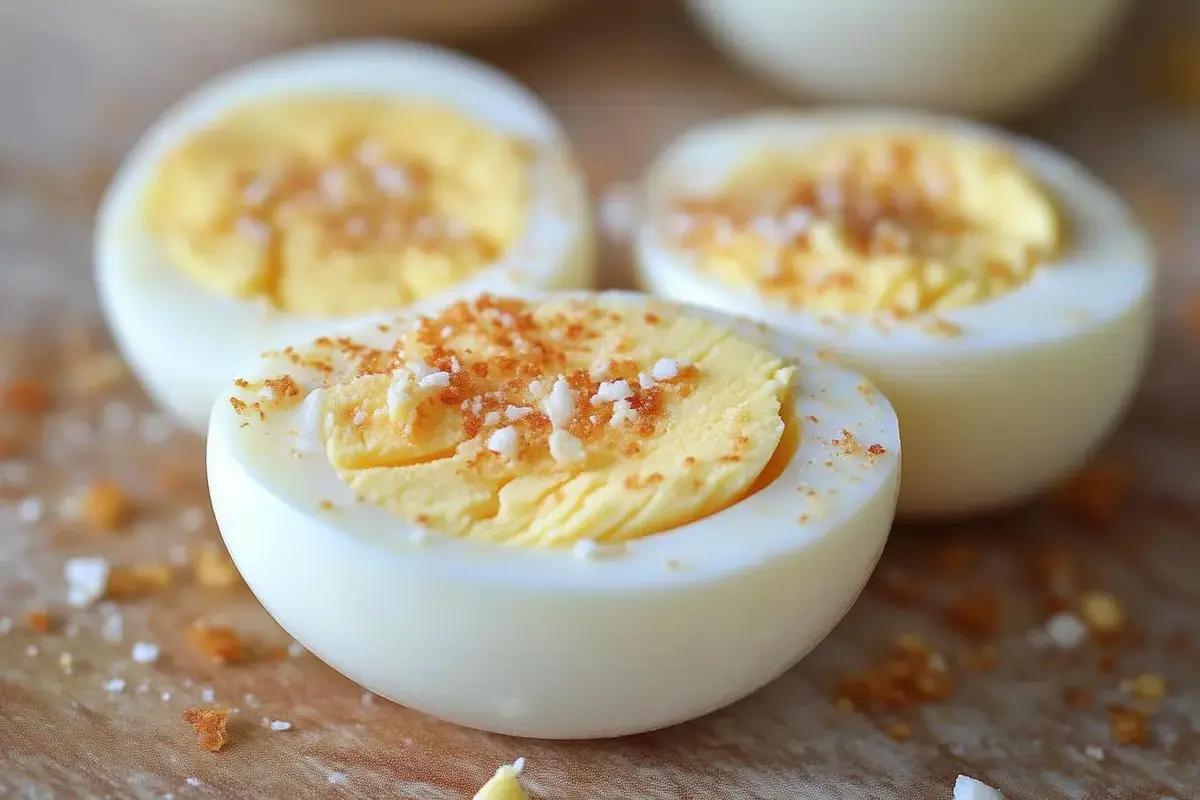In summary
- 🥚 Problem: Scale the hard boiled eggs is often complicated because of the strongly adhering shell.
- 🌟 Tip: Add a ingredient specific in thecooking water greatly facilitates the removal of the shell.
- 🔬 Science behind the trick: A chemical reaction with the calcium carbonate of the shell allows it to be easily removed.
- 🍳 Perfect cooking: Following precise cooking steps ensures not only ease of shelling but also the quality of the eggs.
Who hasn’t struggled with the stubborn shell of a hard-boiled egg? Luckily, a simple trick could turn this chore into child’s play. By adding a special ingredient to the cooking water, you can say goodbye to the frustration of shelling eggs. This article explores this revolutionary method, details the science behind it, and walks you through the steps to achieve perfectly cooked, easy-to-peel eggs.
The Ingredient for Perfect Hard Boiled Eggs
Eggs are an excellent source of proteinsof vitamins and of mineralsmaking their consumption beneficial for health. However, shelling can often be daunting, especially if the shell clings to the white of the egg. The solution lies in adding a simple but effective ingredient to the cooking water: vinegar or the lemon. These substances increase the acidity of the water, which helps soften the shell slightly without affecting the quality of the egg.
The scientific secret behind this trick
The science behind this fascinating technique relies on the reaction between the acid in vinegar or lemon and the calcium carbonatewhich makes up most of the eggshell. This chemical interaction facilitates shell detachment by weakening the molecular bonds between the shell and the membranous film that surrounds the egg white. So when you start peeling the egg, the shell comes off more easily, leaving the white intact.
How to cook a hard-boiled egg perfectly?
To take full advantage of this tip, it is crucial to follow a few simple but precise cooking steps. Start by placing the eggs in a saucepan of cold water. Then add a tablespoon of vinegar or the juice of half a lemon. Bring the water to a boil, then simmer the eggs for 9 to 12 minutes depending on the desired firmness of the yolk. Once cooked, immediately immerse the eggs in cold water to stop the cooking and make peeling easier. With this method, your eggs will not only be easy to peel but also perfectly cooked.
By integrating this little mystery ingredient in your cooking routine, you will transform an often irritating task into a simple formality, allowing you to enjoy the nutritional benefits of eggs without the hassle of preparing them. It’s a great illustration of how a little culinary chemistry trick can make a big difference in everyday cooking.

